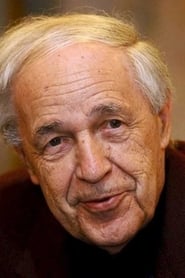Profile

Pierre Boulez
Pierre Louis Joseph Boulez (26 March 1925 – 5 January 2016) was a French composer, conductor and writer, and the founder of several musical institutions. He was one of the dominant figures of post-war contemporary classical music. Born in Montbrison, in the Loire department of France, the son of an engineer, Boulez studied at the Conservatoire de Paris with Olivier Messiaen, and privately with Andrée Vaurabourg and René Leibowitz. He began his professional career in the late 1940s as music director of the Renaud-Barrault theatre company in Paris. He was a leading figure in avant-garde music, playing an important role in the development of integral serialism in the 1950s, controlled chance music in the 1960s and the electronic transformation of instrumental music in real time from the 1970s onwards. His tendency to revise earlier compositions meant that his body of work was relatively small, but it included pieces considered landmarks of twentieth-century music, such as Le Marteau sans maître, Pli selon pli and Répons. His uncompromising commitment to modernism and the trenchant, polemical tone in which he expressed his views on music led some to criticise him as a dogmatist. Boulez was also one of the most prominent conductors of his generation. In a career lasting more than sixty years, he was music director of the New York Philharmonic, chief conductor of the BBC Symphony Orchestra and principal guest conductor of the Chicago Symphony Orchestra and the Cleveland Orchestra. He made frequent appearances with many other orchestras, including the Vienna Philharmonic and the Berlin Philharmonic. He was known for his performances of the music of the first half of the twentieth century—including Debussy and Ravel, Stravinsky and Bartók, and the Second Viennese School—as well as that of his contemporaries, such as Ligeti, Berio and Carter. His work in the opera house included the production of Wagner's Ring cycle for the centenary of the Bayreuth Festival, and the world premiere of the three-act version of Berg's opera Lulu. His recorded legacy is extensive. He also founded several musical institutions. In Paris he set up the Domaine musical in the 1950s to promote new music; in the 1970s he established the Institut de Recherche et Coordination Acoustique / Musique (IRCAM), to foster research and innovation in music, and the Ensemble intercontemporain, a chamber orchestra specialising in contemporary music. Later he co-founded the Cité de la musique, a concert hall, museum and library dedicated to music in the Parc de la Villette in Paris and, in Switzerland, the Lucerne Festival Academy, an international orchestra of young musicians, with which he gave first performances of many new works. ... Source: Article "Pierre Boulez" from Wikipedia in English, licensed under CC-BY-SA 3.0. Born : 26th-Mar-1925
































 Kodiapps app v7.0 - Available for
Kodiapps app v7.0 - Available for 
